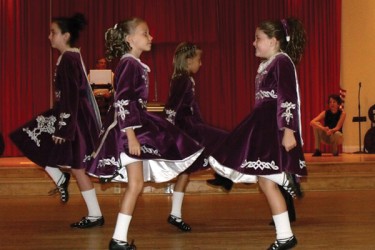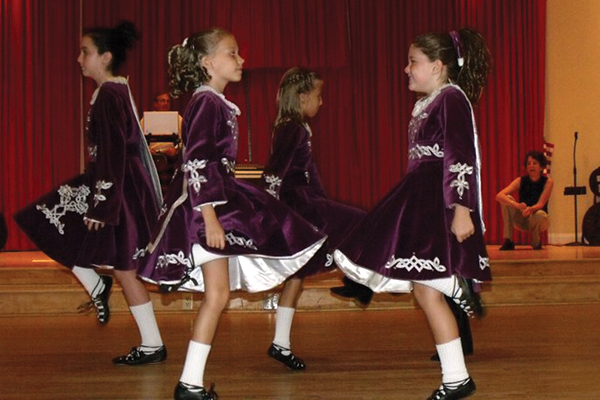
It’s the most wonderful time of the year. While some students are decking the halls with boughs of holly, others are lighting the menorah and dancing the hora – this season is packed with fun-filled traditions from around the world. Here are some of the holidays that students celebrate over winter break.
Chrismukkah
Sophomore Emily Balter knows what it means to be diverse. Raised in Miami with Jewish, Roman Catholic and Cuban roots, Balter celebrates both Hannukah and Christmas.
“I like celebrating both holidays because I get the best of both worlds,” Balter said. “I feel that much more blessed.”
During Hanukkah, Balter and her family light the menorah while reciting prayers. Also, she receives small gifts every day during the eight days of Hanukkah, which begins at sunset Dec. 20. Christmas celebrations then begin on Noche Buena (Christmas Eve) on Dec. 24. During the celebration, her family eats lechon (roasted pig), arroz (rice) and frijoles (beans). Each Christmas at midnight, her family attends mass. Then, on Christmas day, she exchanges presents with her parents and brothers.
“For Hanukkah, I always get small, random gifts,” Balter said. “One year, I got eight different books I wanted and I often get socks. For Christmas, I usually get a larger present. Last year, I got an iPhone.”
Fishes and Christmas wishes
Although the Festa dei Sette Pesci (Feast of the Seven Fishes) has its origins in Southern Italy, freshman Luke Pukatch and sophomore Steven Piniella have each brought the tradition over to the United States.
The feast consists of serving seven different seafood dishes, though some Italian American families celebrate with five, nine or even 11. All these dishes are served on Christmas at midnight, in celebration of the Vigilia di Natale (Christmas vigil).
Pukatch, whose hometown is in South Windsor, Conn., is a Roman Catholic who began celebrating the Feast of the Seven Fishes after his aunt’s first husband began the tradition in his family. Even though he is not Italian, he and his family continued the celebration.
“It’s something different and you have to do something different on Christmas,” Pukatch said.
Piniella, who is from Stony Brook, N.Y., and has Southern Italian roots, is a practicing Roman Catholic. He has celebrated the Feast of the Seven Fishes for as long as he could remember, as his family is from Southern Italy.
“I love seafood and I love that it’s a family tradition that’s been around for generations,” Piniella said. “I feel really connected to my Italian roots.”
Piniella, however, celebrates the holiday with five fish dishes instead of the traditional seven. Dishes on his holiday table range from seafood pasta to bacala (fried, salted cod fish) prepared in the traditional Italian fashion.
Two Christmases
Junior Samantha Mikaiel celebrates two Christmases. A resident of Sarasota, Fla., Mikaiel is a practicing Coptic Orthodox Christian.
While Mikaiel was growing up, her parents, who were born in Egypt, celebrated Christmas on Dec. 25 as well as the Coptic Orthodox Christmas about a week later.
“My family, we celebrate Christmas on Dec. 25 and Jan. 7. On the 25th, that’s more of the commercial Christmas we celebrate,” Mikaiel said. “We give presents on the 25th; on the 7th we go to church.”
Before and after the January Christmas, she and her family fast by abstaining from meats and dairy foods. After attending church services at midnight on Jan. 7, they celebrate with a large feast, including nonvegan foods, like meat and dairy.
“I personally love it; I think it’s interesting,” Mikaiel said. “Since we have this different Christmas, a lot of people don’t realize we celebrate it on a different day. Dec. 25 isn’t my only Christmas; there is another Christmas, and I feel proud. It’s unique.”
Kwanzaa craze
Senior Leah Danville and her family celebrate both Christmas and Kwanzaa. While she is personally a Unitarian Universalist, her extended family is made up of Christians and Muslims.
Originally from Washington D.C., Danville said her and her family have been celebrating Kwanzaa since 1992. Kwanzaa, which takes place from Dec. 26 to Jan. 1, is the celebration of the African-American culture, among other principles and values including the importance of family and community.
“A lot of people misinterpret Kwanzaa and think it’s a substitute,” Danville said. “My family uses it as a time to reflect where we come from and our roots. We use Kwanzaa as a time to celebrate where we come from, but also use it to celebrate Christmas as well.”
Born to a Jamaican father and an African-American mother, Danville said that her religion has a lot to do with celebrating both holidays.
“I would definitely say my religion has a lot to do with being able to celebrate both religions because our congregation is so diverse,” Danville said. “We use a lot of different religious documents, including the Bible, Buddhist, Jewish and Muslim sources.”
The luck of the Irish
Junior Lauren Geraghty, who lives in Naples, Fla., celebrates Christmas at her Irish grandparents’ house. Her grandparents serve dishes including corn beef and blood sausages, accompanied with Irish soda. Each year, her family plays Celtic music, and her cousins perform an Irish step dance. Geraghty is Irish from both sides of her family.
“My family tries to integrate traditional Irish celebrations into American holidays,” Geraghty said. “We celebrate both aspects of my American and Irish culture, which I really enjoy because I get to celebrate and hold onto my Irish heritage so that I can maintain my roots.”







